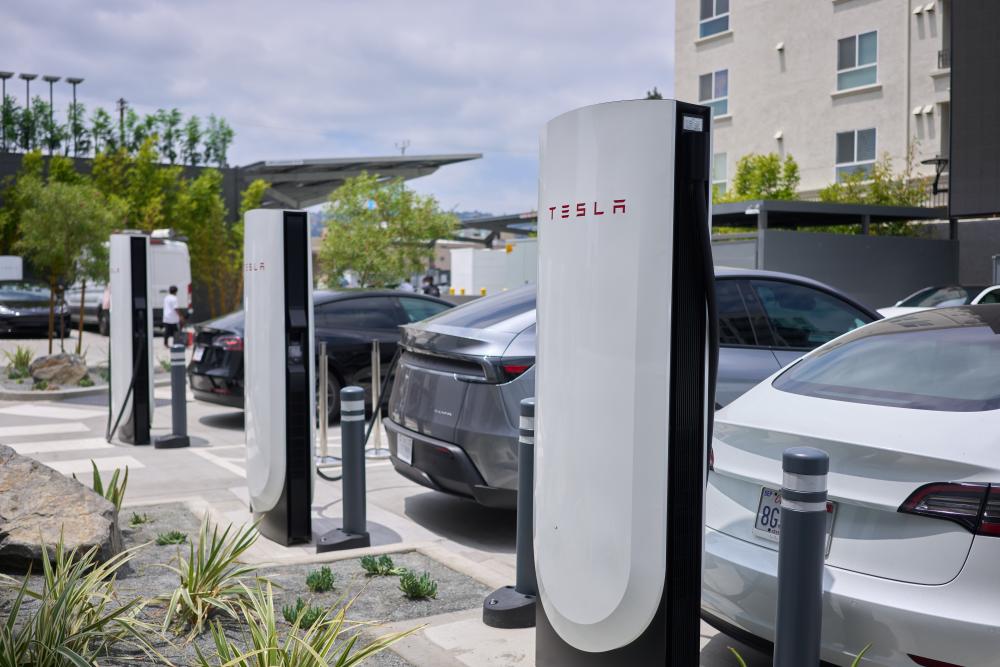Tesla faces revenue and profit drops in uncertain financial year

Tesla Faces Financial Challenges and Public Scrutiny
Tesla has had a challenging year, marked by declining financial performance and increased public scrutiny. Once a leader in the electric vehicle market, the company is now grappling with falling stock prices, intense competition, and a CEO known for his unpredictable behavior. Recently, Tesla reported a drop in both revenue and profit for its second-quarter earnings, signaling further struggles.
The company’s revenue fell by 12% compared to the same period last year, reaching $22.5 billion, which was slightly below Wall Street’s projected $22.7 billion. Additionally, operating income dropped to $900 million, a 42% decrease from the previous year. This marks the second consecutive quarterly decline for Tesla.
Despite these numbers, CEO Elon Musk remained optimistic during a call with analysts, calling the quarter “very exciting” and expressing confidence that Tesla could become the most valuable company in the world. He highlighted the launch of driverless cars in Austin, Texas, and the opening of a Tesla diner in Los Angeles, which he claimed was a huge hit. Musk also mentioned that the company’s humanoid robot, Optimus, has been walking around independently in its Palo Alto lab.
However, Tesla’s stock experienced a 5% drop in after-hours trading. Throughout 2025, the stock has been volatile, starting the year at a near all-time high of $428 per share in January and plummeting to $222 per share in March. Overall, the company’s stock has declined nearly 13% this year.
In its financial summary, Tesla attributed the poor results to a decrease in vehicle deliveries, lower regulatory credit revenue, and a reduced average selling price for its vehicles. Earlier this month, the company released data showing a 14% drop in vehicle deliveries compared to the previous year. Industry data also revealed that in California, Tesla’s car registrations have fallen for seven straight quarters, with a 21.1% drop in the second quarter. In Europe, new car sales fell by 27.9% in May compared to the previous year, contrasting sharply with other electric vehicle manufacturers who have seen an increase in sales over the past year.
The volatility at Tesla has been partly linked to Musk's role as the de facto head of the so-called "Department of Government Efficiency" (Doge) under Donald Trump's administration. At Doge, Musk pushed for federal government downsizing, leading to agency closures and widespread layoffs. This sparked mass protests against Tesla and calls for a boycott of the company.
By early June, as Musk prepared to leave his position as a special government employee, tensions between him and Trump escalated, resulting in a public feud. The two exchanged insults on social media, causing another drop in Tesla’s stock.
Experts warn that the Tesla brand is under threat due to the negative perception of Musk. Dipanjan Chatterjee, a principal analyst for Forrester, noted that the brand's image has suffered significantly, with many potential customers viewing it as toxic. This poses a major challenge for Tesla’s growth.
After the conflict with Trump, Musk shifted focus back to his companies, promoting the rollout of Tesla’s first driverless robotaxi in Austin. The initial launch included about 10 cars in specific areas of the city, each with a safety driver. Despite Musk’s claims of success, several videos surfaced on social media showing the robotaxis driving incorrectly, speeding, and struggling with left turns.
Two days after the launch, the National Highway Traffic Safety Administration (NHTSA) opened an investigation into the service and requested Tesla to provide information on the incidents.
During the analyst call, Musk joked about expanding the robotaxi service in Austin, referencing it as "bigger and longer." He also announced plans to launch the service in California, Arizona, and Florida, aiming for half of the U.S. population to have access by the end of the year. However, regulatory challenges make this goal seem unlikely. Musk emphasized that Tesla is being "extremely paranoid" about safety.
On the political front, Musk has not ruled out a return to Washington and is currently starting a new U.S. political party called the America Party.